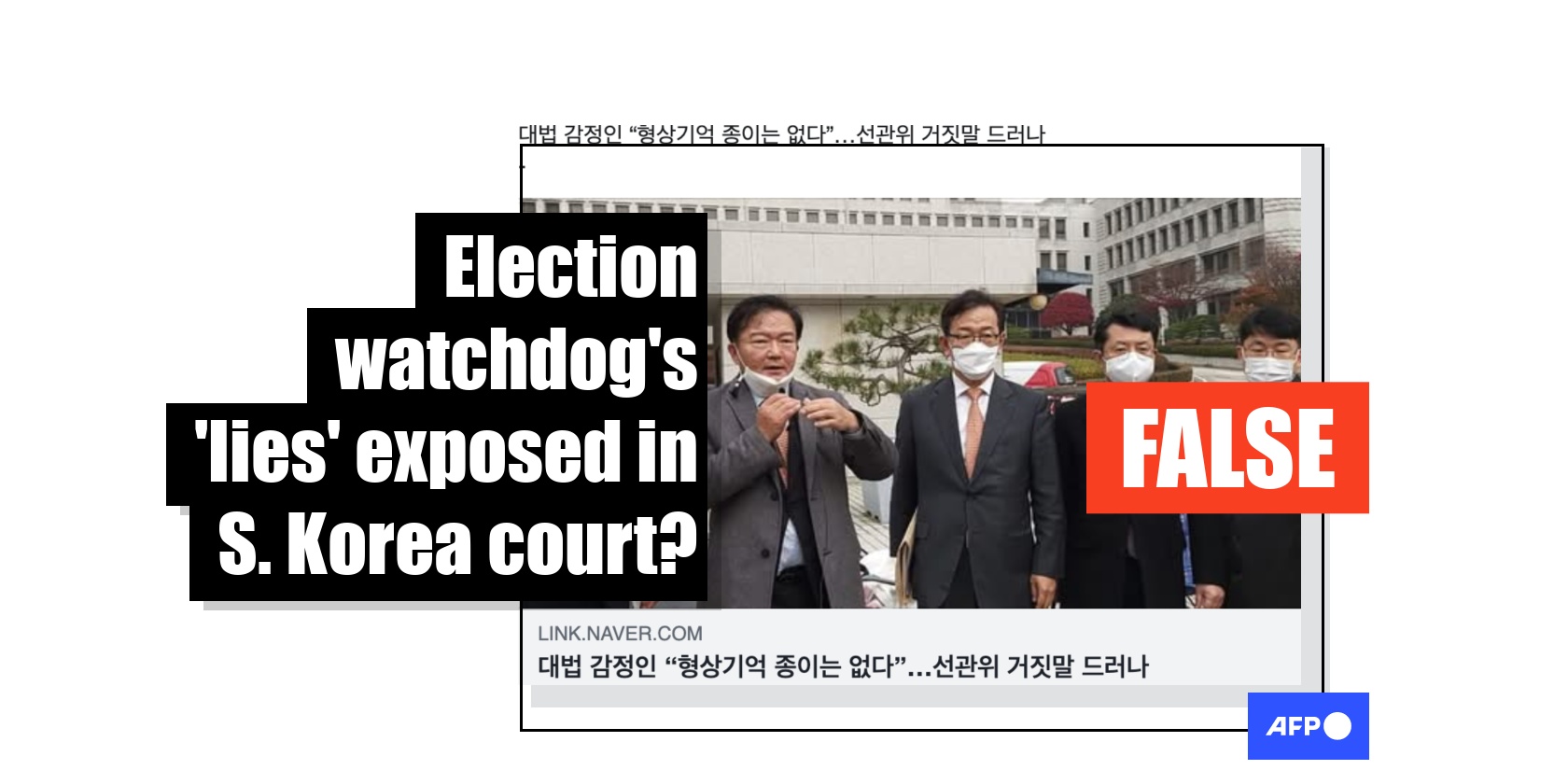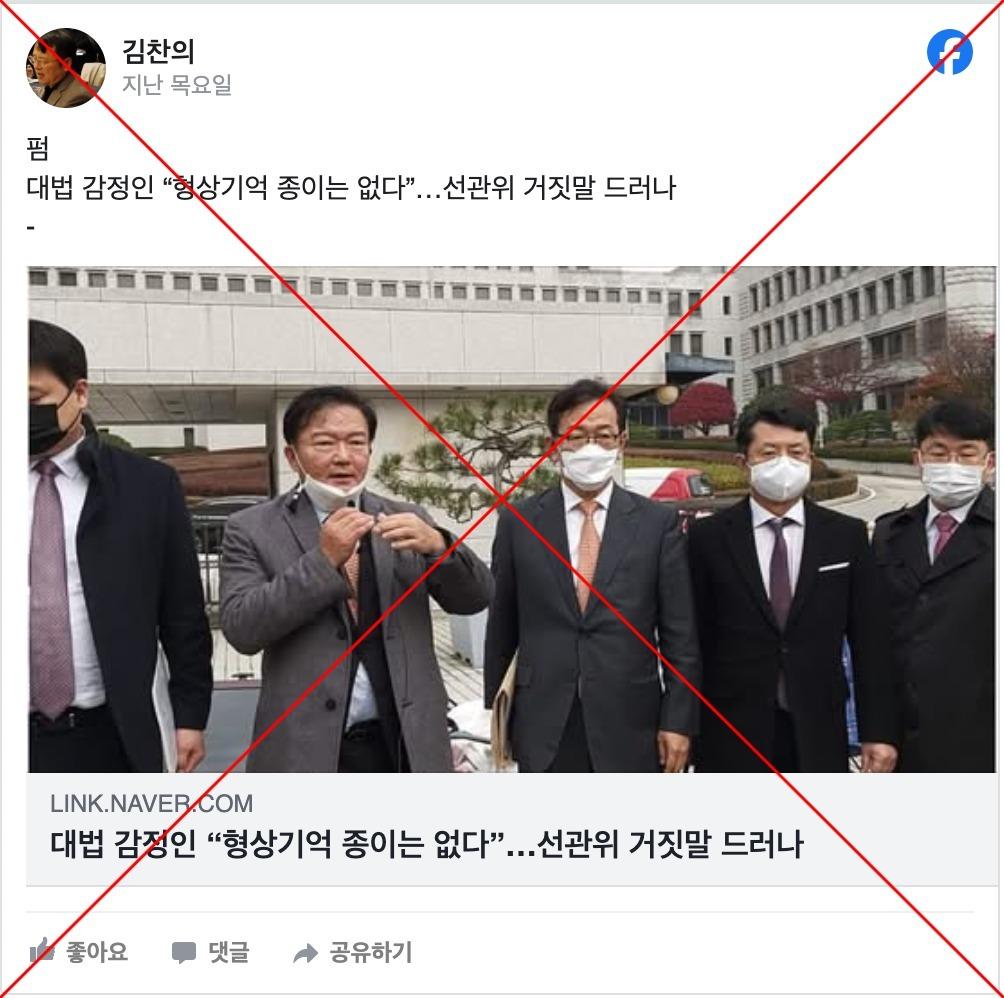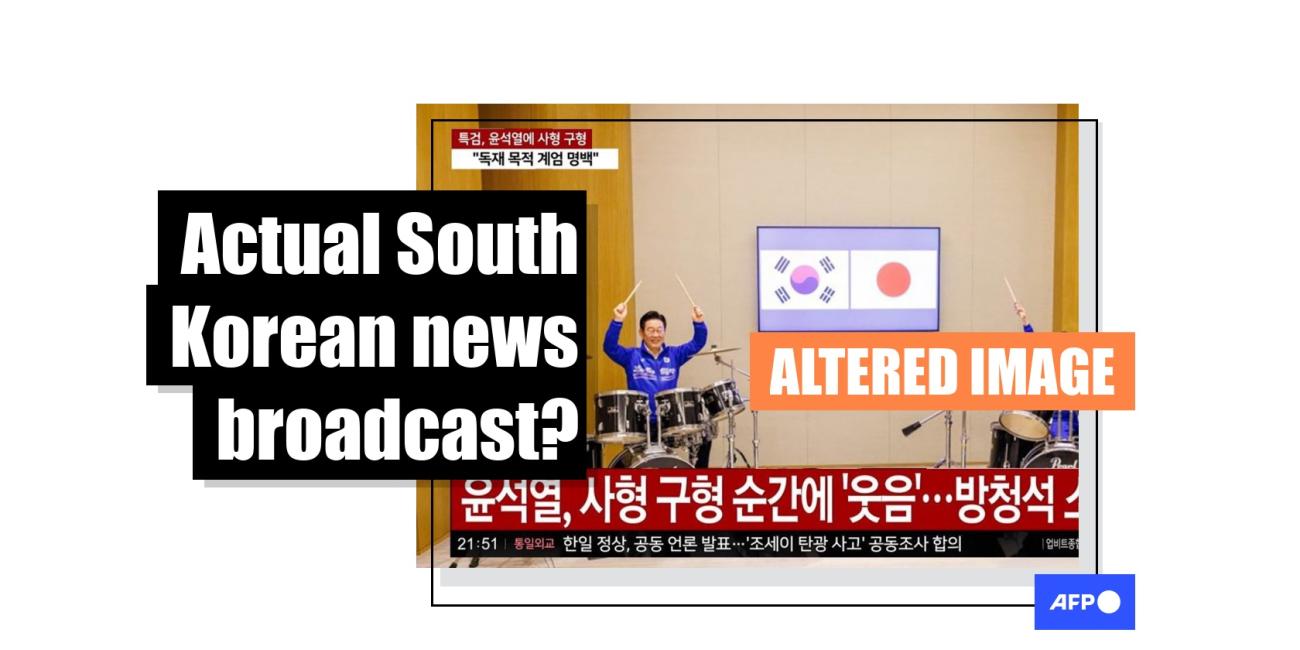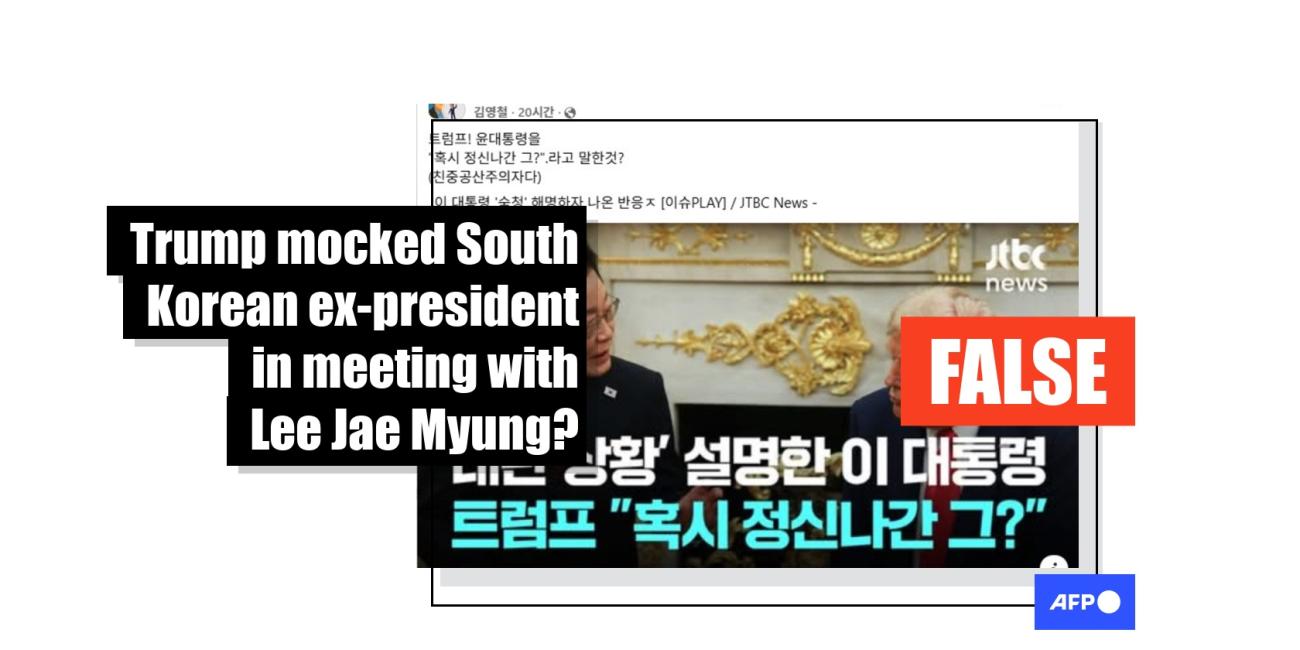
Unsubstantiated election fraud claims resurface after S.Korea president's martial law attempt
- This article is more than one year old.
- Published on January 2, 2025 at 05:32
- Updated on March 31, 2025 at 03:48
- 2 min read
- By Hailey JO, AFP South Korea
"Supreme Court assessor says 'shape-memory paper does not exist' … The National Election Commission's lies exposed," read a Korean-language Facebook post shared on December 20, 2024.
The post linked to a 2021 article with the same headline by right-wing South Korean online news outlet News and Post about a court case challenging the results of the 2020 parliamentary elections.
"Shape-memory paper" is a phrase used by far-right supporters -- emboldened by Yoon's presidency -- to refer to ballot papers in conspiracies about electoral fraud (archived link).

The now-impeached Yoon defended his short-lived declaration of martial law in December 2024 by doubling down on electoral fraud claims and defending his decision to deploy troops to the NEC headquarters on the outskirts of Seoul.
The commission has condemned the "unconstitutional" seizure of its headquarters as a threat to democracy.
Yoon's bungled declaration on December 3, which led to his impeachment, has left him facing arrest, imprisonment or, at worst, the death penalty. He has resisted arrest for days, but South Korean prosecutors have vowed to execute a warrant that expires on January 6 (archived link).
Similar claims about the commission's "lies" about alleged fraud in the 2020 polls were also shared on X here and here, as well as on South Korean online forums Ilbe and DC Inside.
But, as of January 2, 2025, no evidence of the 2020 polls being rigged has emerged, despite multiple cases filed in court.
According to South Korea's election commission, 126 lawsuits sought to nullify results of the 2020 elections over alleged fraud, all of which have been concluded (archived link). Another 33 lawsuits have been filed over the 2024 polls, with some still ongoing.
"No evidence of the commission engaging in vote rigging emerged in any lawsuits," a representative from the NEC told AFP on December 12, 2024.
The circulating posts, in fact, shared an old article about one such lawsuit in a false context.
Dismissed lawsuit
The November 19, 2021 News and Post article shared in the false posts was about a case filed in Incheon, southwest of the capital Seoul, which argued ballots without fold marks should be considered forgeries.
AFP has debunked a similar false claim about the case.
In July 2022, South Korea's top court ruled that the absence of fold marks alone did not provide evidence of irregularities and dismissed the case (archived link).
It also noted that Professor Shin Soo-jeong from the Department of Wood and Paper Sciences at Chungbuk National University -- an expert named in the News and Post article who was present during the court hearing -- found no irregularities in the ballot papers that the plaintiff claimed were forged (archived link).
A representative for the election commission said at the time the ballots were designed to have better crease recovery compared to regular paper to avoid jamming in an electronic sorter.
Furthermore, there is no mention of the commission having either lied or made false claims in the court's written verdict.
AFP has debunked other misinformation spurred by Yoon's martial law declaration here, here and here.
Updated to add metadataMarch 31, 2025 Updated to add metadata
Copyright © AFP 2017-2026. Any commercial use of this content requires a subscription. Click here to find out more.
Is there content that you would like AFP to fact-check? Get in touch.
Contact us




